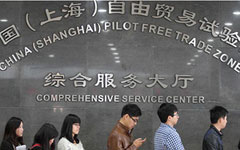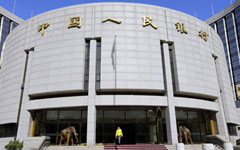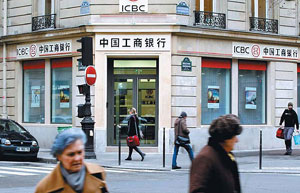PBOC clarifies rules on FTZ yuan business
By Wu Yiyao and Wei Tian in Shanghai (China Daily) Updated: 2014-02-22 07:56Analysts said the opening-up of China's financial sector and the broader international profile of the yuan has increased the use of the currency.
"Expansion of the international use of the renminbi within the zone will significantly enhance the efficiency of the utilization of funds and boost cooperation between lenders and enterprises," said Dai Haibo, deputy director of the FTZ's administrative committee.
|
 |
|
 |
"Commodity trading, which is mostly handled by institutional investors, will generate much larger transaction volumes than cross-border yuan payment services," Chen said.
He said that similar policies for a wider range of commodities such as oil and other metals were in the pipeline. The futures market in the FTZ may also offer yuan-denominated settlements.
In November, the FTZ welcomed its largest financial company so far in terms of registered capital - the Shanghai International Energy Trade Center, with capital of 5 billion yuan ($820 million).
The organization is expected to be China's first foray into trading crude oil futures.
These efforts are intended to give China a larger voice in the pricing of global commodities. China's role in setting such prices doesn't yet match its massive demand for these products, Chen said.
Don't miss:
|
 |
 |
- NHTSA says finds no 'defect trend' in Tesla Model S sedans
- WTO rare earth ruling is unfair
- Amway says 2014 China sales may grow 8%
- President Xi in Europe: Forging deals, boosting business
- CNOOC releases 2013 sustainability report
- Local production by Chery Jaguar Land Rover this year
- Car lovers test their need for speed in BMW Mission 3
- China stocks close mixed Monday

















